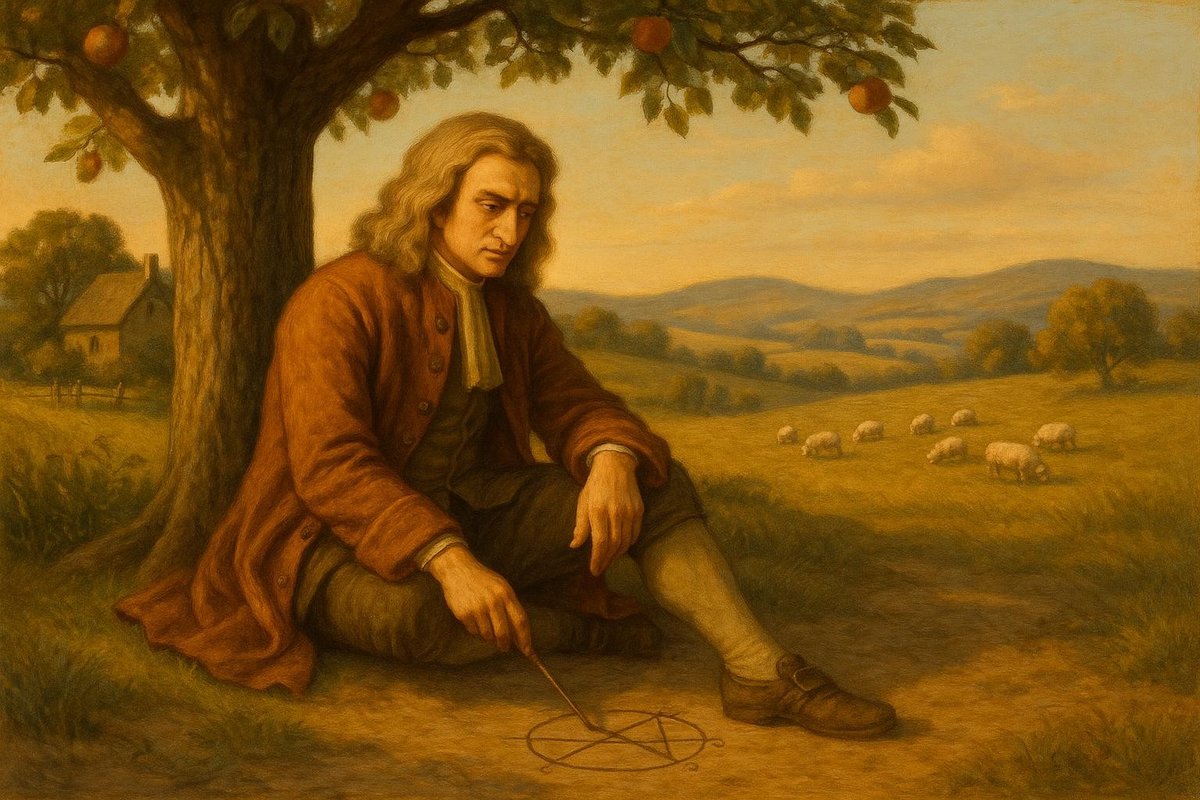
In the quiet of an English countryside, a solitary thinker pondered the dance of celestial bodies and the mysteries of earthly motion. Isaac Newton, a name many equate with the laws that govern our universe, found genius in solitude. Interestingly, it was during a period of isolation that he unlocked the secrets of calculus and motion, laying the groundwork for modern science.
Early Influences
Before Newton’s groundbreaking work, there existed a landscape of mathematical ideas waiting to be sculpted. Newton’s youth was marked by a fascination with the natural world, a curiosity sparked by the works of Galileo and Kepler. His early years at Trinity College, Cambridge, provided fertile ground for his intellect, yet it was the plague of 1665 that truly shaped his path.
- Plague forced Newton into rural isolation in 1665, a pivotal moment for his discoveries.
- Inspired by works of prior mathematicians, he began his journey into calculus.
- His solitude became a catalyst for profound introspection and innovation.
No wonder, during his time at Woolsthorpe Manor, he developed early concepts of calculus and the law of universal gravitation. The absence of distraction allowed his mind to wander and explore realms unknown.
Mental Models
Newton was a peculiar thinker, often building mental models to simplify complex phenomena. He envisioned the universe as a vast mechanism, with every star and planet adhering to a grand design. But how did he translate such abstract concepts into tangible laws?
- Conceived notions of motion as geometric paths, integrating mathematics and philosophy.
- His mental models allowed him to visualize forces acting at a distance.
- Quotes reveal his reliance on the clarity of thought: “If I have seen further, it is by standing on the shoulders of giants.”
Of course, it was this unique approach that allowed him to unify celestial and terrestrial physics. His insights formed the foundation of classical mechanics, proving that simplicity often unveils the most profound truths.
Challenges & Resilience
Newton’s journey was not without challenges. His ideas were met with skepticism and controversy, especially his calculus development parallel to Leibniz’s work. This intellectual rivalry, however, did not deter him.
- Faced accusations of plagiarism from contemporaries, notably Leibniz.
- Remarkably resilient, he refined his theories amidst scientific disputes.
- His relentless pursuit of truth transcended personal and professional challenges.
As time goes on, we see his resilience as a testament to his character. Despite the challenges, Newton’s rigorous methods and unwavering focus on empirical evidence propelled him to success, redefining scientific inquiry.
Legacy
Newton’s legacy is immortal, etched into the very fabric of scientific discourse. His contributions laid the groundwork for subsequent scientific revolutions, influencing luminaries like Einstein and Hawking.
- His Principia Mathematica remains a seminal work in physics and mathematics.
- Inspired countless scientists and mathematicians, shaping the Enlightenment era.
- His laws of motion continue to underpin modern technological advancements.
Interestingly, his introspective nature and meticulous approach serve as a blueprint for aspiring scientists today. Newton’s insights remind us that solitude and reflection often pave the way for groundbreaking discovery.
Fuel Someone Else’s Curiosity
Reflecting on Isaac Newton’s life, it’s clear that solitude can be a wellspring of innovation. Share this story and spark curiosity in others. Who knows, the next great thinker might be pondering the universe in their quiet corner, ready to transform the world.

Leave a Reply